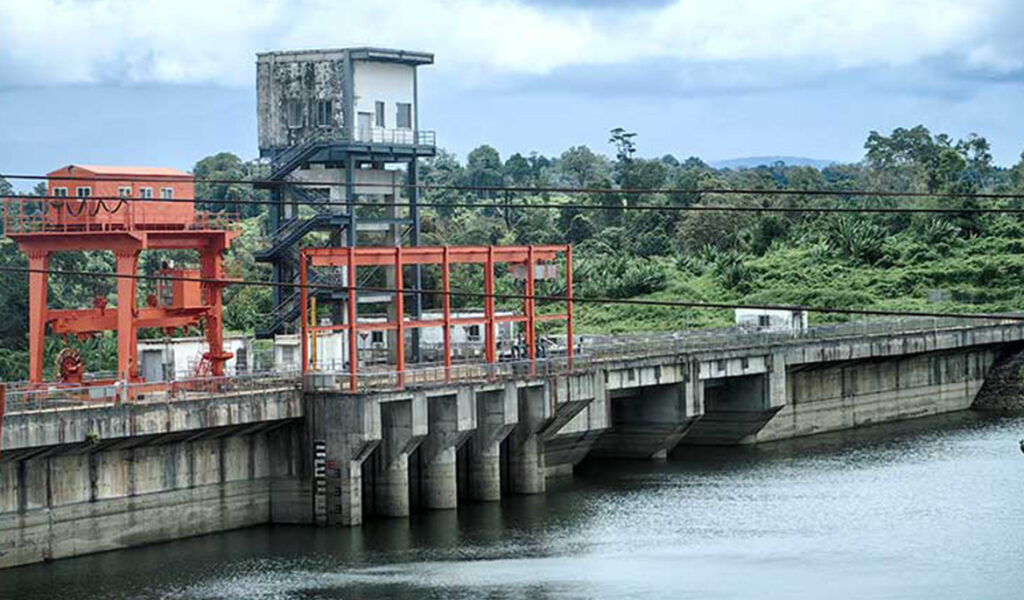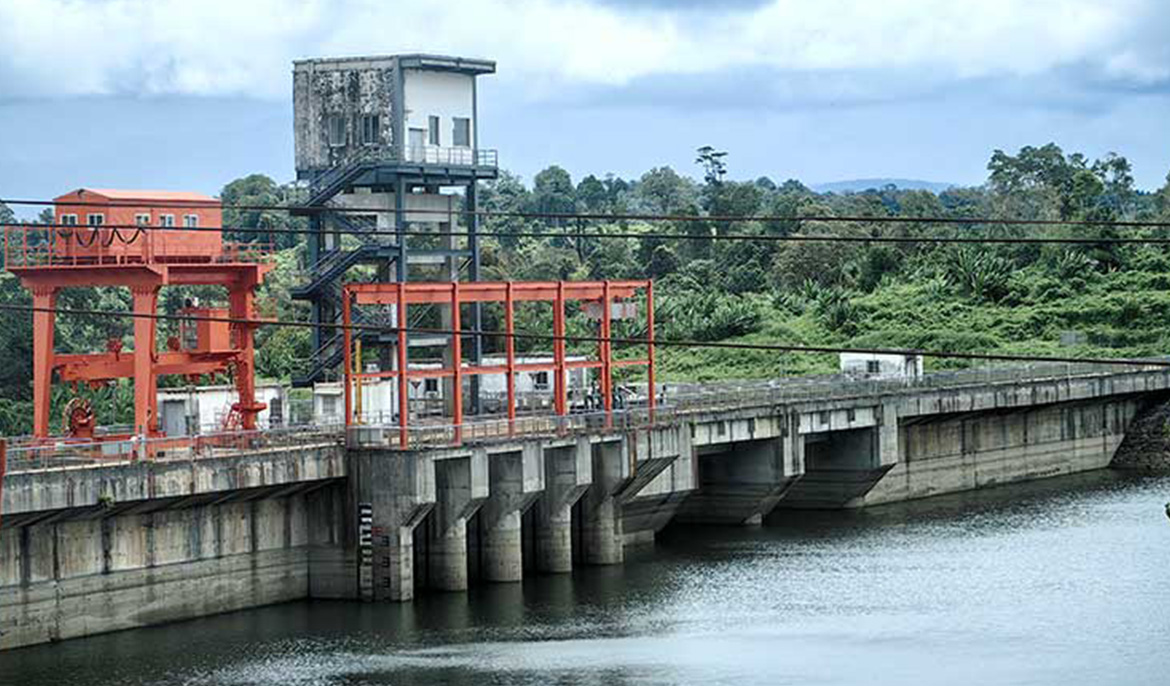Minister of Mines and Energy Keo Rottanak has unveiled potential industrial development in Pursat province, now dubbed the country’s “battery”, which once known as a remote Khmer Rouge stronghold. Significant foreign investments are now pouring into the area, contributing to economic growth and improving the livelihoods of local residents.
Pursat, Cambodia’s fourth-largest province by area, features a diverse range of bioregions, from densely forested mountains to fertile plains and the Tonle Sap basin. With forests covering over half of the province, Pursat is now emerging as a potential eco-tourism destination due to its rich biodiversity and natural resources.
However, times have changed. What was once one of Cambodia’s poorest and most inaccessible provinces, heavily affected by landmines, is now on the path to becoming a hub of industrial development and the country’s “battery” due to hydropower dam projects.
Speaking during a recent interview, Rottanak, who is also head of government working group assisting Pusat, said that like in other provinces, the Special Economic Zone in Pursat is the area situated in the most suitable areas to help investors’ businesses grow and prosper.
“However, the unique aspect of this area is that we are attracting knowledge-based industries, such as the Ford assembly plant, a giant US automobile manufacturer. The vehicle assembly industry is a new type of industry here,” he said. “We have already attracted foreign investment for producing power cables and other electrical equipment. Zo Motors Co., Ltd has now begun its factory inauguration.”
Rottanak highlighted the peace and political stability in the country, crediting former Prime Minister Hun Sen’s Win-Win Policy, which integrated Khmer Rouge resistance forces with the government in 1998, as well as the leadership of Prime Minister Hun Manet.
“We are proud to welcome this company (ZO Motors) as they inaugurate their factory here. Next month, Minebea, a Japanese multinational manufacturer currently operating in Phnom Penh, will expand its operations to Pursat due to its growing business, made possible by the peace and political stability in the country. They have chosen Pursat as their next investment destination,” he added.
He said that the zone has prepared over 100 hectares of land for industrial development. Minebea will invest in 50 hectares, while Zo Motors is investing in over 10 hectares, with plans to produce up to 3,000 electric vehicles (EVs) per year in the first stage for local and ASEAN countries market distribution.
“If our economy remains stable and our people continue to support peace and strong national unity, this company could increase production to up to 10,000 electric vehicles, including electric Tuk-Tuks,” he explained.
ZO Motors officially held its groundbreaking ceremony for a truck assembly plant in Pursat province’s Krakor district on August 18, 2024. The plant will be developed on a 10-hectare site within the Krakor Special Economic Zone.
Presiding over the event, Rottanak expressed gratitude to ZO Motors for choosing Cambodia as its first investment destination in ASEAN and selecting Pursat province as the location for its electric vehicle assembly plant.
ZO Motors is a Japanese company specialising in next-generation energy commercial vehicles and zero-emission commercial trucks.
The company, which has a global supply chain, operates in China, Japan, and the US. The US automaker Ford has invested over $20 million in an assembly line for the production of the Ford Ranger and Ford Everest.
Cambodia’s first Ford assembly plant was inaugurated on June 16 in the Krakor Special Economic Zone, reflecting the rising demand for brand-new vehicles among Cambodians.
This $21 million investment is expected to create over 500 jobs and assemble approximately 9,000 vehicles annually.
In addition, Minebea Cambodia, a subsidiary of the Japanese precision components manufacturer MinebeaMitsumi, is set to expand its production operations in Cambodia by constructing a second factory in Pursat province.
The company aims to enhance its production lines and establish a dedicated economic zone within Pursat. This expansion is anticipated to generate a significant number of jobs, with projections indicating up to 8,000 positions by 2030.
The construction of MinebeaMitsumi’s second plant marks a significant milestone for Cambodia’s industrial sector. The project is expected to attract further investment, create substantial employment opportunities, and contribute to the country’s economic growth.
Pursat province was strategically chosen for its proximity to Thailand and the convenient access provided by the recently expanded National Road 5, which now features four lanes.
Pusat provincial governor Khoy Rida said the development in the province was particularly through contributions from the national and sub national level, development partners and private sectors and all armed forces and law enforcement officials.
“We consider the private sector as the locomotive of development,” he said.
He said the government has been providing confidence to the investors.
The province has a total of 315 investment projects, which provide jobs to a huge workforce, to contribute to national development and improve people livelihoods.
Rida congratulated Zo Motors for its contributions to promote people’s livelihoods, saying the province is placed fourth in the country’s industrial development.
Rida said continued development would contribute to transforming Cambodia to become a high-income country by 2050.
The Cambodian government has set a target of becoming an upper middle-income country by 2030 and further a high-income country by 2050.
Both Rottanak and Rida emphasised that although Pursat is far from Phnom Penh, the province is an attractive location where the people have embraced peace, with the overwhelming majority voting for CPP.
Speaking during the groundbreaking ceremony this month, Hidetoyo Teranishi, Deputy CEO of ZO Future Group and Executive Director of ZO Motors, described the event as one of the most important milestones in the development of ZO Motors.
He noted that Cambodia is currently undergoing rapid economic development and is one of the most economically dynamic markets in Southeast Asia.
“It is believed that with the continuous improvement of Cambodia’s logistics infrastructure and the increasing consolidation of its position as a logistics centre in Southeast Asia, Cambodia is about to enter a period of comprehensive transformation from traditional energy to green energy,” he said.
He highlighted that the ZO Motors Cambodia Factory has been established at an ideal time and is ready to make practical contributions to promoting Cambodia’s energy transformation.
He mentioned that the “Thousands of Charging Stations” infrastructure plan (for EVs), which relies on Cambodia’s existing power grid system, aims to make full use of power redundancy and peak-shifting energy while gradually building supercharging stations across the country.
“The site selection will focus on key locations such as logistics centres, public transportation hubs, main roads, and large commercial complexes,” he added.



